New to Scuba Diving? There are skills that you need to acquire to become a competent and confident diver. This article will give you an overview of the fundamental scuba diving skills you need to master in before you can start exploring the underwater world with ease.
Let’s have a look at them!
SWIMMING
The first and foremost basic skill you need for scuba diving is swimming. Swimming underwater while scuba diving requires less effort than swimming normally. This is because the scuba fins will help you move swiftly and the buoyancy compensation will help you keep afloat.
EQUALIZING YOUR EARS
As you make your way into the depths of water, you will experience pressure in your head. Now this is because one might not have equalized the ears. There are various methods to cope with this. Keep on reading to find them out!
The descent in scuba diving should always be performed at a slow pace. After making sure your gear is set, you will need to equalize the pressure in your ears as you keep descending lower into the water. Descending too quickly can cause discomfort. Hence it is important to perform certain techniques to avoid it.
- Look out for the pop – Before you start the dive, make sure to swallow as you stretch your jaw, or you can even gently pinch and blow until you hear/feel the “pop” in both of your ears. This indicates that both eustachian tubes have opened and the ears are now equalized.
- Start Early – Several hours even before the dive, gently begin to equalize your ears every few minutes. Some divers chew gum, as it seems to help people because it makes you swallow often and thus equalizes ears often.
- Equalize Often- Keep equalizing your ears to keep up with the pressure as you descend. Equalize as and when you feel slight pressure differences.
BREATHING UNDERWATER
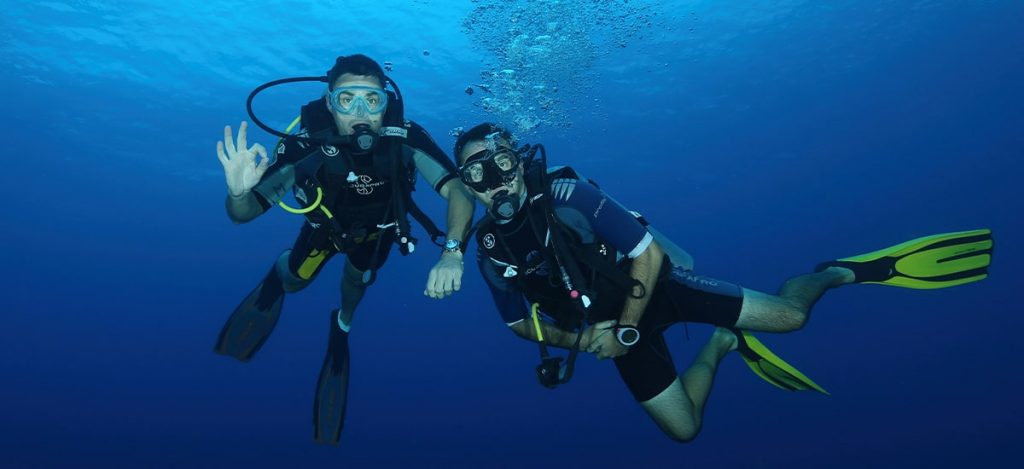
We all know humans can’t breathe underwater. Breathing underwater while scuba diving involves breathing out a tank which has compressed air. This is different from the air available for breathing as it has higher amounts of oxygen. In scuba diving, you will be trained to breathe through your mouth.
You must always breathe while scuba diving. You should never hold your breath. This is because as you descend deep, pressure decreases and increases accordingly. If you hold your breath as you change your depth in the water, the air inside your lungs may expand or contract. This is not advisable.
The more slowly you can breathe in and breathe out the more you will be improving your air utilization.
MAINTAINING BUOYANCY
Maintaining buoyancy is the number one scuba skill for every diver to master. All it takes is a calm, focused mind, and steady exercises along with actions.
Divers do this with the help of a buoyancy control device (BCD). Buoyancy control is determined by various components, like BC inflation, balance weight, trim, exposure suit buoyancy, depth, and breath control. You will inhale less air when your buoyancy is managed on point.
By controlling your buoyancy, you will be able to move safely. You will also learn to avoid harming any corals, artifacts, and disturbing marine habitats by dragging your equipment or limbs close to the seafloor.
USING HAND SIGNALS
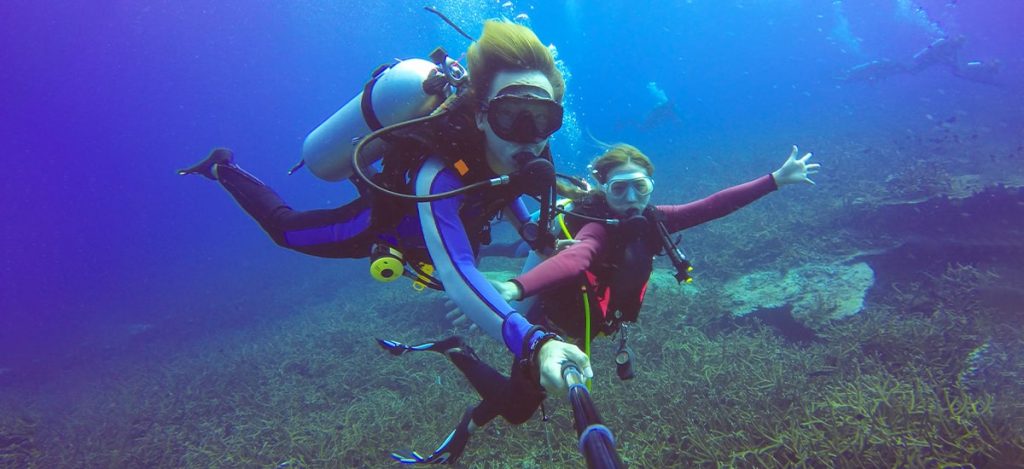
Every diver must be aware of how to communicate well underwater with your diver buddy. Hand signals underwater include all kinds, from ascend to an ear issue. Communicating underwater using diving signals with your team or partner is crucial.
Hand signs like “breathe” “danger” and “I have problem equalizing” will alert another individual and they will effectively help you out.
It is fun once you start having conversations using just hand signals underwater after a couple of scuba diving sessions. Hand signals are mostly universal, and very easy to pick up from the first few classes.
EMERGENCY PROCEDURES
It’s quite rare and uncommon that you will end up in a situation where you will have to utilize a crisis climb procedure. All divers and trainers should regularly check hardware and particularly before the session. Running low on air is enough to account for an emergency ascent. In case of an unforeseen circumstance like equipment failure, you must know what to do when the need for one arises.
You should practice PADI’s four emergency ascent procedures. They are namely, normal ascent, alternate air source ascent, emergency swimming ascent, and buoyant emergency ascent. Learning these and being comfortable using them will ensure that you don’t freeze and panic in case of an emergency situation.
OTHER SKILLS
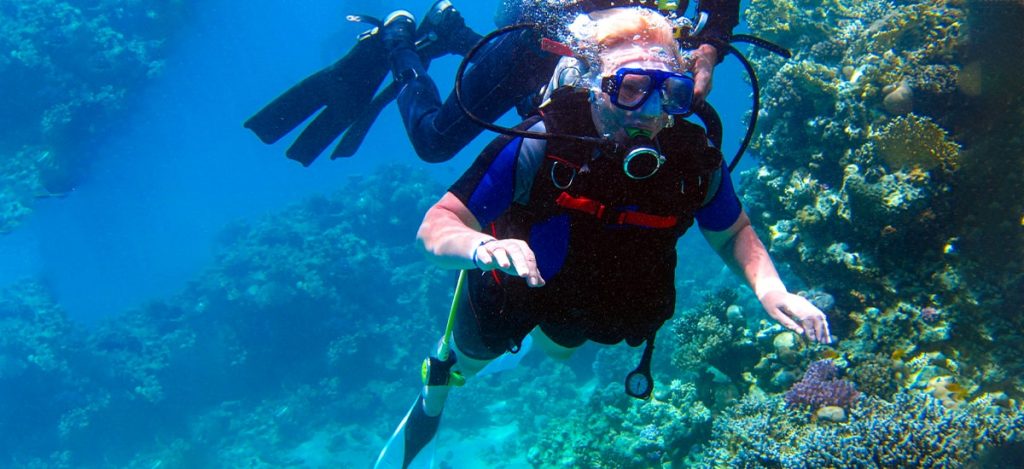
Apart from the above mentioned skills, it is always an added advantage to keep some things in mind before scuba diving. They are as below.
- Once the diver has donned all the equipment and safety gear, you should check them again, thoroughly for its functioning before the dive.
- In times of emergency, it’s crucial to have one more pair of hands for assistance. So it’s always suggested to dive with a dive buddy.
- Make sure you dive well within limits, meaning gauge your capabilities, training, how often you have been doing scuba diving. If you have not quite been exercising or if you feel a little under the weather due to any health conditions, it is better to take a rain check. We always encourage you to explore and expand your limits, but at the same time, one must also take into consideration the evolving boundaries of your exploration.
- Many scuba divers go out into the ocean with an intention to understand and preserve marine life. Having prior knowledge about marine life is nothing less than a skill. It is always advised to not touch, or stand on the ocean floor. Also be careful while finning near the coral reefs. Observe, admire and enjoy like a responsible scuba diver while you are underwater.
If you are interested in scuba diving in Dubai, you can get in touch with PursueIt. We can offer you the best experience and trainers in some of the best underwater locations known. Whether you are a beginner or an expert, we have something for everyone.
Don’t miss this opportunity to dive into the depths of ocean and discover a whole new world. Master Scuba Diving Skills, we also offer other water sport activities that you can check out.
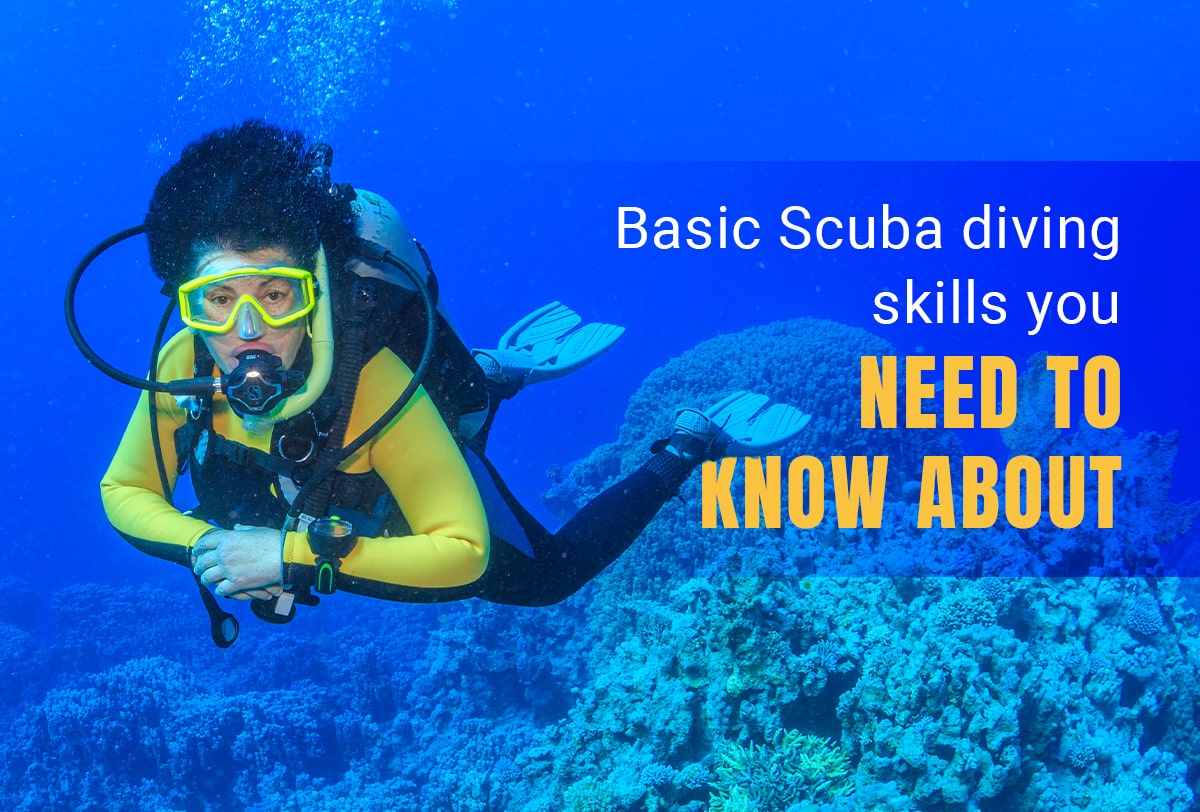
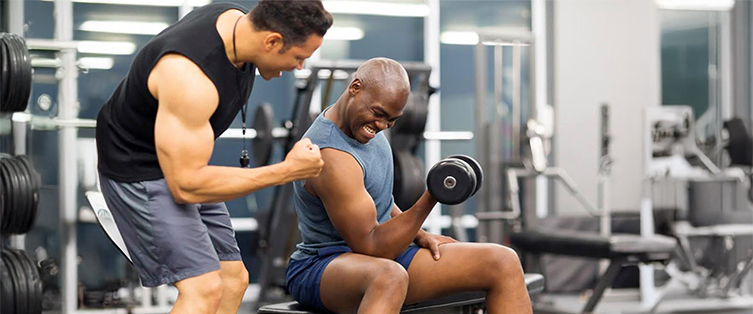
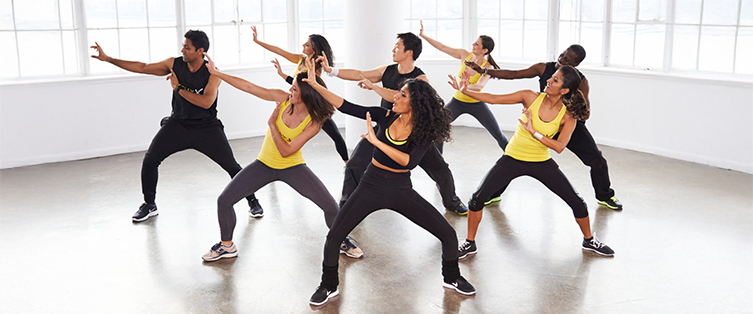

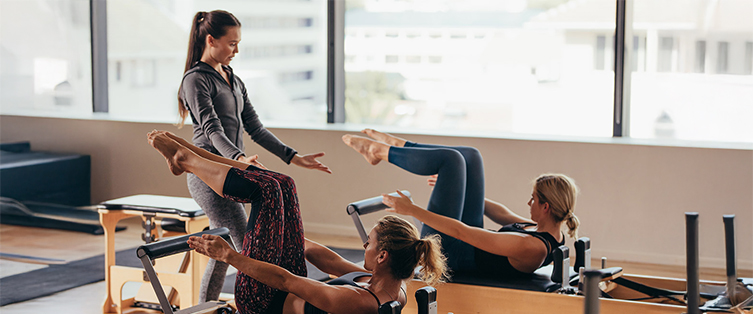
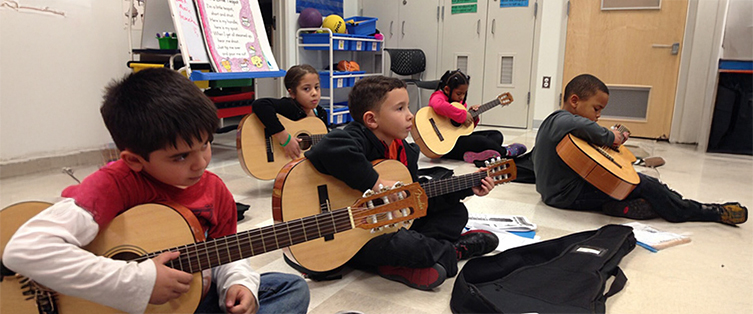
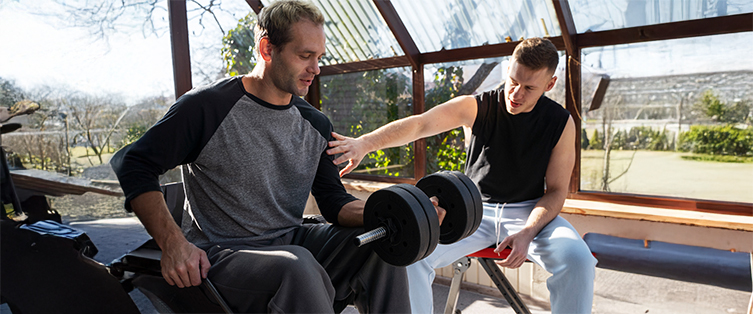
Leave a Reply